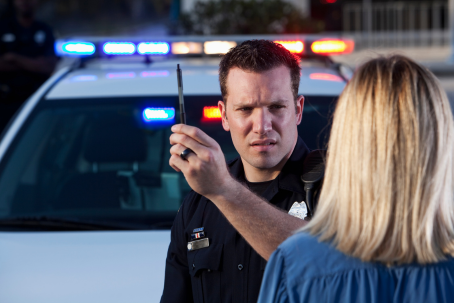Being accused of driving under the influence or having an OWI conviction can have a major impact on your life. This is why it is crucial to understand your rights and responsibilities if you are pulled over by law enforcement. While making field sobriety tests can be especially important in ensuring safety for everyone on the road, they can be inconclusive and easy to manipulate in many cases.
Every person should understand when and under what circumstances the police can require a sobriety test for their own safety and well-being, but this is not a subject that people talk about. There is a stigma to refusing a sobriety test, as if doing so is essentially admitting guilt but this is not always the case.
Dangers of Drunk Driving
Wisconsin is known for our abundance of social gatherings–be it sports, concerts, or events–and with that comes a reputation for higher than average alcohol consumption. While there is nothing wrong with having a drink or two with your friends on a night out, it is essential to find a responsible and safe way back home after.
Despite efforts to raise awareness and enforce strict laws against drunk driving, OWI accidents are still a leading cause of car accident fatalities.
Driving under the influence can have major impacts on the way you drive and put others in danger in many ways, including:
- Impaired judgment
- Reduced reaction time
- Decreased coordination and motor skills
- Poor perception of speed and distance
- Increased drowsiness
Field Sobriety Test Basics
Despite the dangers of drunk driving, you are still not legally mandated to go through field sobriety tests if you have not given an officer reason to believe that you are intoxicated. You are fully in your rights to refuse if you have not broken any laws or driven in a suspicious or dangerous way.
Some common types of field sobriety testing include:
- Horizontal Gaze Nystagmus Test or HGN Test
- Walk-and-Turn Test or WAT Test
- One-Leg Stand Test or OLS Test
- Breathalyzer
In Wisconsin, police officers are legally allowed and obligated to conduct sobriety tests under certain conditions. These conditions primarily revolve around the suspicion of driving under the influence (DUI) or operating while intoxicated (OWI). According to Wisconsin's implied consent law, by obtaining a driver's license, you implicitly consent to chemical testing to determine blood alcohol concentration (BAC) if lawfully arrested for OWI. Emphasis on lawfully.
Reasonable Suspicion and Probable Cause
In order for a police officer to require a sobriety test of any kind they must have reasonable suspicion or probable cause that leads them to believe that you are under the influence. These must be noticeable and provable to qualify.
Reasonable suspicion may be based on observable behaviors such as erratic driving, slurred speech, or the smell of alcohol, while probable cause requires stronger evidence indicating impairment, such as failed field sobriety tests or visible open containers of alcohol in the vehicle.
Legal Ramifications of Refusing a Sobriety Test
While you are not legally required to adhere to a sobriety test if you have not exhibited any suspicious behaviors, it may come down to your word against theirs. If you are arrested on an OWI charge, refusing a sobriety test can have significant legal ramifications in Wisconsin.
Under the state's implied consent law, anyone operating a motor vehicle is deemed to have implicitly consented to chemical testing if lawfully arrested for operating while intoxicated (OWI). This means that refusing to submit to a sobriety test after a lawful arrest can result in administrative penalties and may impact the outcome of any legal proceedings.
If you refuse a sobriety test and have been arrested, it is crucial that you contact a criminal defense attorney to help you navigate the maze of paperwork and red tape that comes along with all OWI cases.
The Importance of Legal Representation in OWI Cases
The difference that having experienced and reliable legal representation in OWI cases cannot be overstated. OWI charges carry serious consequences that can impact every aspect of your life, including driving privileges, employment, and personal reputation. Having a knowledgeable defense attorney by your side is crucial to effectively navigate the legal process and protect your rights.
Your Partner in OWI Cases
If you have been accused of driving under the influence in Wisconsin, don't navigate the legal minefield of an OWI case alone. At The Singleton Law Firm, we specialize in defending drivers facing OWI charges. Our experienced attorneys understand the nuances of Wisconsin's OWI laws and have a proven track record of success in defending clients against these serious charges.
Don't risk the severe consequences of an OWI conviction—contact The Singleton Law Firm today for your free consultation.



